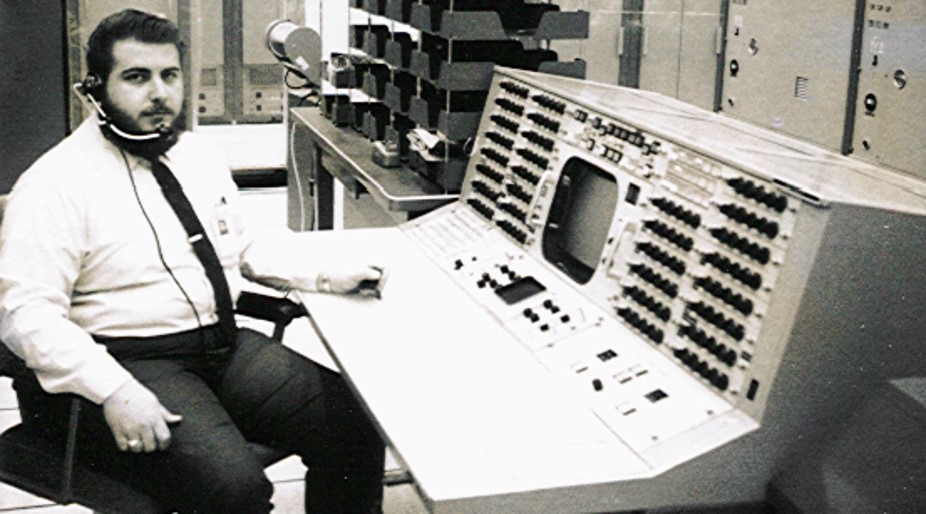By Tom Taormina
Being an entrepreneur is not for the faint of heart. Every five years or so, some natural or man-made tragedy turns our world upside down and we must reinvent ourselves for the new normal.
As a consultant and expert witness, 2008 was a financial disaster. 2020 made 2008 look like a walk in the park—possibly because we are advised not to walk in the park.
Learning to work virtually has been difficult for most used to a structured environment. Not working at all is even more devastating. Fortunately, I have had a home-based office for 30 years, so the lack of travel was a relief for me.
Every time we have one of these life-changing events, I use the time to take an inventory of my career, skills, and weaknesses. I do a SWOT analysis and develop a new strategic plan that builds in safeguards from the lessons learned in earlier disasters. In previous decades I would brainstorm the plan with my business partner, however, he was a victim of COVID-19. Losing him as a friend and confidant made my quest and the reality of being a 75-year-old entrepreneur even more compelling.
This article is intended to help you reflect on your skills and build a strategic plan for 2021 based on the likelihood that business as we know it has fundamentally changed. Therefore, we will need to create the new normal, not become victims of it.
A personal history
I spent the first 14 years of my career at NASA’s Mission Control Center in Houston during the Gemini and Apollo programs. During the last ten years of that period, I was one of the first quality control engineers. There were three major life lessons that I drew from that portion of my career. First, there is no goal that is impossible. We were given a vision and mission from President Kennedy. We just made up our minds and did it.

Second, when you have a compelling vision and a plan on how to get there, thousands of people can work together in harmony and collaboration. We had true leaders that lived the vision and gave us the tools to succeed at the mission.
The third lesson is that failure is not an option. We successfully rescued the Apollo 13 crew by facing each crisis head on and finding a solution to each new issue.
I also spent much of those ten years doing supplier audits and source inspections. That took me to 47 states and witnessed industries ranging from sheet metal to computers. Yes, I had a blessed start to my career that likely is not possible anymore but is the foundation of everything I have done since.
My next three jobs were running electronics manufacturing operations. My plan was to dismantle traditional quality assurance and make the workers responsible for their own work. It worked well in all three cases. This time I reported to the CEOs and immediately became immersed in how companies operate. Interfacing with the other managers was an education in wholistic organizational operations.

My last job in corporate America was as director of training at a division of a multinational oilfield supply company. We implemented self-directed work teams in engineering and manufacturing. That was another success story of employees being accountable for their work and to each other.
Unfortunately, they reorganized the division, and my job was eliminated. The vice president gave me my office for three months and asked me to find out what this ISO 9001 thing was all about. That was in 1989. Ever since I have been consulting and training in the beneficial use of ISO 9001 implementations. I have written ten books with the theme of quality as a profit center.
Meanwhile, I became a founding member of the Financial Services Information Exchange (FSIX). Its charter was to create a quality management system for financial institutions, so we developed the first draft of FS9000. We quickly garnered the interest of financial professionals to create a proactive management system so that they would be inherently and continually in compliance and make their annual financial audit less expensive and less punitive. Hanging out with bankers, stockbrokers, insurance executives, and Wall Street consultants for a year greatly enriched my understanding of business finance. Unfortunately, our last meeting was two weeks before 9/11 in the World Trade Center.
I was also recruited as an expert witness for plaintiffs in legal suits involving product liability and organizational negligence. I adopted my quality auditing skills to conduct forensic investigations in 42 cases to date. I have a 96-percent success rate because organizations do not follow their own procedures. They inevitably create risks that were foreseeable and that are provable using root cause analysis. Anecdotally, 100-percent of the defendants that were ISO 9001-certified were proven not to be following the standard. My eleventh book is entitled Foreseeable Risk and offers guidance for attorneys litigating products liability. It is now the desk reference for risk avoidance.
Where we are today
So that brings us to January 2021 in the middle of a pandemic and weaponized politics. Among the victims are quality professionals that are experts at the use of the tools of quality management but do not have the background and skills to adapt in downsizing and repurposing companies. We consultants are no longer needed for process improvement and team building because most business leaders are doing triage and trying to survive.
For me, this has become a perfect storm. My experience, research, and work as an expert witness convinced me that the tenets of current quality management are fundamentally flawed. Our mission is to minimize process variation to drive defects to their lowest theoretical minimum. Once you have witnessed pictures of burned children in a house fire that was caused by a defective electrical device, you become convinced that zero outgoing defects is the only acceptable level.
I have also been adopting the legal term of foreseeable risk to take the conundrums of risk management and risk-based thinking and turn them into an imperative for risk avoidance.
With my C-level management experience I have been making the case that key business metrics are the only meaningful metrics and that we as quality professionals had better start making those connections if we are to survive and be contributing members of the greater organization. The rapid decline in ISO 9001 certifications and Six Sigma implementations are the unfortunate result of quality professionals not being champions of business excellence.
Earlier this year, I wrote a series of articles on risk avoidance and business excellence that were published in Exemplar Global ’s Auditor Online and Quality Digest. The response has been profound from many who were awakened to their incomplete roles in business management and the fact that their paradigm of risk mitigation was less than optimal. Combine that awareness with the threat of the pandemic ending their careers and the perfect storm I mention earlier came to fruition.
Fortunately, I have kept my skills inventory current, and I have been working to develop coursework around my trademarked methodology, Forensic Business Pathology (FBP), which is geared toward experienced quality professionals, trainers, and those with effective auditing skills. It is built on an ISO 9001:2015 baseline but adds business excellence and risk avoidance tools. It makes them the new comprehensive champions of success for the entire organization or for consulting clients. Enlightened leaders and strategic thinkers will embrace this new resource as strategic tool in the pandemic recovery.
My suggestion is that you take some introspective time to catalog your skills and begin to plot a strategic success path so you will come out a winner on the other side of COVID-19. FBP is destined to become the new benchmark of business success and excellence. I realize that many of you are at least half my age, so I encourage you to learn vicariously from my experiences and make the 75-year-old entrepreneur relevant again.
I also believe that FBP will create a renaissance in ISO 9001 certifications with its value-added approach. Are you up for being a pioneer in the new world of business excellence and risk avoidance?
About the author
Tom Taormina, CMC, CMQ/OE, is a subject matter expert in the ISO 9000 series of standards. He has written 10 books on the beneficial use of the standards. He has worked with more than 700 companies and was one of the first quality control engineers at NASA’s Mission Control Center during Projects Gemini and Apollo. He is also an expert witness in products liability and organizational negligence.

